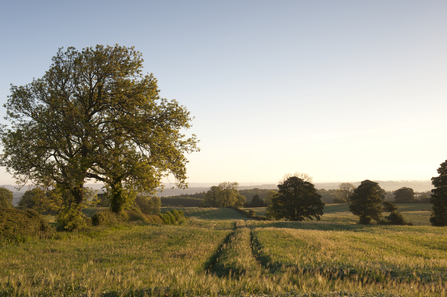A complicated relationship
The relationship between farming, nitrogen, and the environment is a complicated one. On the one hand, nitrogen is an essential component of healthy plant growth and is often a limiting factor in the growth rate of crops. As a result, for centuries farmers have made efforts to artificially increase the level of nitrogen in their soils to produce more food from smaller areas of land.
However, too much nitrogen can create huge problems for the wider environment. Nitrous oxides are potent greenhouse gases, with a warming effect 300 times greater than that of CO2, it is a significant contributor to global warming. It can also be a serious pollutant and cause severe disruption to ecosystems, particularly freshwater, estuarine, and coastal habitats, by creating an imbalance in nutrient availability.
The 20th century saw both the development of synthetic chemical fertilisers and the rapid intensification of agricultural systems in the UK. The result - a huge increase in the amount of nitrogen applied to our landscape and the dominance of farming systems which relied on additional inputs to maintain high levels of food production.
At the same time, we have witnessed terrible wildlife declines that have decimated our countryside in recent decades. The UK is in the bottom 10% of countries globally for biodiversity. We have witnessed a 41% decline in our wildlife species since the early 1970s, largely driven by damaging agricultural practices, and 15% of our species are threatened with extinction.
This is bad news. A healthy and thriving natural world is essential for supporting a resilient food system. Healthy soils, clean water, and thriving populations of pollinating insects all provide crucial ecosystem services which underpin sustainable food production. Declines in these life support systems have led to a regressive cycle of even further reliance on synthetic chemicals to replace the services provided by nature, but the cracks in this system are already starting to appear.
A perfect storm
We are now seeing that rather than increase food security, the reliance on inputs has only served to undermine food system resilience in the UK. The intensification of agriculture in the 20th century, coupled with the degradation of the life systems which underpin sustainable farming, has left food production in the UK more exposed to shocks in global market supply chains.
The ongoing crisis in Ukraine has seen synthetic fertiliser prices sky-rocket, meaning that farming systems which rely on these chemicals are not only environmentally unsustainable in the long term but also uneconomic. The conflict is also resulting in global shortages in grain and wheat, putting further pressure on our food systems in the UK, particularly intensive livestock farming which relies on feedstocks.


